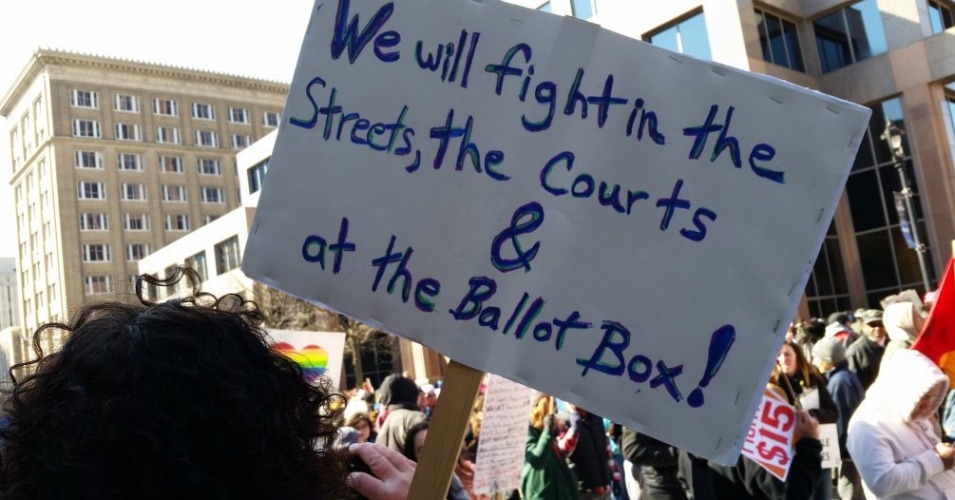
Courtesy of StoryofAmerica.org
Raleigh, North Carolina had a rather exciting weekend, one which the news media has chosen to largely ignore. Nearly 100,000 gathered in the streets of Raleigh in support of the Moral Monday, a groundswell movement that is now beginning to taking hold in other states in the deep south.
Starting in 2013, Reverend William Barber II, president of the North Carolina NAACP and the leader of the Moral Monday movement, has rallied North Carolinians who have seen draconian legislation passed by their state GOP controlled government aimed at the most vulnerable of the populace. The group has five demands;
• Secure pro-labor, anti-poverty policies that insure economic sustainability;
• Provide well-funded, quality public education for all;
• Stand up for the health of every North Carolinian by promoting health care access and environmental justice across all the state’s communities;
• Address the continuing inequalities in the criminal justice system and ensure equality under the law for every person, regardless of race, class, creed, documentation or sexual preference;
• Protect and expand voting rights for people of color, women, immigrants, the elderly and students to safeguard fair democratic representation.
Barber addressed the crowds with a keynote speech, according to an article in The Nation. “You may have thought you were going to discourage us, but instead you have encouraged us. The more you push us back, the more we will fight to go forward. The more you try to oppress us, the more you will inspire us,” Barber said.
Barber and the Moral Monday activists realize 2014 will be a year that the political climate in the state will only become more divisive. As other states follow the example of the North Carolina’s legislation, the struggle becomes “a state fight with national implications,” as Barber states it.
Occupy World Writes stands in solidarity with the Moral Monday Movement and all groups voicing demands for change when local, state or national governments fail their responsibility to govern without discriminatory laws or policies.




